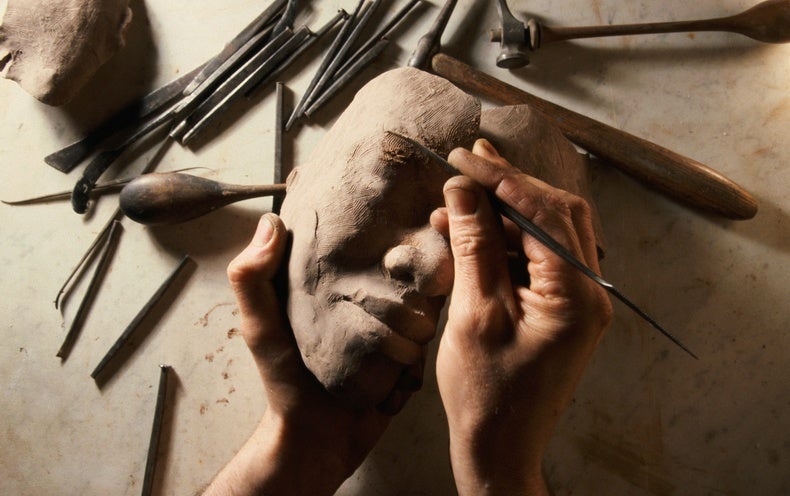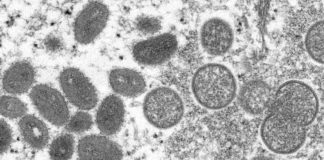
It is 2018, the second year of my psychiatry residency training, and I’m in the shower, unable to stop the doubts: “What if I don’t know enough for my patients?” You know more than enough. “Do I remember that exact mechanism of that specific drug?” It’s okay to not remember everything. “No, it’s not. You’ve learned for certain people it’s not.” You’re going to be okay. “Am I?” You’ve prepared enough. “Have I?”
As a psychiatry resident who is African-American and gay, I am accustomed to the doubt. I am a doctor—a good one. But the second I step foot outside my apartment, I am reduced to my skin color and sexual orientation. A physician’s job is to help and to heal patients at their most vulnerable. Doctors themselves are rarely allowed to let their guard down, however. And for minoritized physicians, the pressure to be “perfect” is even higher; they aren’t allowed to be less than perfect. And even perfection is too often not enough.
I know this fact because I have lived it. If I don’t put on the performance, if I am not perfect, I know precisely what will happen. When I report racist behaviors toward me, I will be asked, “What were you doing wrong?” I will be questioned about my choice to dye my hair—I’ve done the entire color wheel: from neon blue to shocking orange to calming fuchsia and even a distinguished gray. But because sexual orientation, skin color, clothes and hairstyle apparently make a physician for some, my decisions to express myself have led to my clinical acumen being doubted, my medical decisions disputed, while my colleagues continue their rounds uninterrupted.
I know, too, that my experience is the reality for far too many African-American trainees in medicine. This injustice is happening in medical schools across the U.S. Minorities encounter higher rates of discrimination than their straight, cisgender and white male colleagues. They are not promoted. They are tasked with heading diversity efforts but denied praise and support. At the end, they may leave these institutions, burned out, psychologically damaged and filled with sorrow.
To protect against the coronavirus pandemic, every health care worker now wears a mask to work. But for minoritized physicians, these masks are nothing new. I’ve worn them for years. My masks are there to guard against another pandemic: racism and homophobia. I wear them so I won’t be perceived as a threat to the system based on facts of my birth.
Every day I morph and mold myself to meet the expectations that all minorities must navigate. Every day I surrender some of my identity to “fit in” with a medical system that is not built to allow minoritized physicians to flourish as themselves.
Who was I once, underneath all of those masks? I was a scientist who wasn’t as bogged down with dealing with racism and homophobia every day. That freedom in college and graduate school allowed me to do melanoma research. I had the chance to be that friend who stayed up until dawn with you as we shared our stories and united our hearts and celebrated our differences of orientation, gender, religion or any other factor society uses to separate us. I wrote fantasy novels because I didn’t have to continually think about how to make the school I worked in better for minorities. I could have nuanced conversations about race, diversity and advocacy with my fellow students, because most of us came from a place of common respect. I didn’t need my masks then.
These are not those days of yore, though. So as I head to work, I cycle self-protectively and almost lovingly through my masks. They are old friends, facets of myself, after all: I’ve given each of them a name that could come from a fantasy novel.
I could be Fantasy Chase, filled with boundless energy, who believes the world is full of wonderful people—who has no armor and is open with everyone. What will people not see if I wear that face? A young man deeply frustrated by promises of equity, fighting off pessimism about a medical system and a country that seem to hold no place for him to be himself. The mask will allow him to hide his rage, because he knows any anger, no matter how justified or righteous, will indelibly brand him as the stereotypical “angry Black man.”
I could become Snow Chase, who watches each person’s every move, who maps out every single interaction of people and groups around him, who is painstakingly precise and coldly calculating—who doesn’t make mistakes. This mask hides a kid who is frightened that he is in fact stupid—a young man who has internalized all of the terrible things that have been said about African-Americans in this country. Without that mask, I will be trapped by the constant doubt that I have only achieved what I have because I am African-American and gay and not through sheer intelligence, hard work and, yes, economic privilege.
I could transform into Warrior Chase. I could wear the mask of the eternal champion and place that battle armor on—defending other people from the realities of the world, constantly speaking up against the bigotry experienced by friends, acquaintances and people I barely know. Behind this image, I will tell you, is a person who only wishes that others would defend him from the constant onslaught of implicit biases, overt aggressions and minority stresses that are all too prevalent in our country. A person who remembers when he and so many others stood against such biases in college and graduate school and now feels mostly alone in trying to do so.
Or, in dire moments, I could warp myself into Shadow Chase. While the other three personas are defensive, Shadow Chase takes the offensive. With him, I attack. I take all the darkness that burns me inside, and I unleash it, perfectly-honed, to put people enacting bigotry in their place. I use words as weapons. I dislike Shadow Chase most of all. He conceals the vulnerability I once could display openly: I have lived with merciless depressive symptoms and suicidal ideation, and many times I’ve been sure I will eventually kill myself because of the daily discrimination I’ve faced. Being Shadow Chase allows me to deflect and avoid my despair at the fact that near the end of college, my depressive symptoms had completely vanished because I was in a safe environment with friends who changed—and saved—my life. I once thought my depression was gone forever. That mask hides my fears that I deserve the racism, homophobia and discrimination I experience because I dared to be myself.
He hides the recurring nightmare that this is all my fault. Even though I take medications and am “stable”—and am so often told I am an excellent physician—no medication is powerful enough to stop racism, homophobia and the havoc such forces wreak on my mind.
Yet I believe that we can get to a better place. There are those who look nothing like me—a category that generally includes everyone, actually, seeing as I have neon-dyed hair—who understand what it means to be an African-American, gay man in a medical system made for straight, white, cisgender men. The best allies acknowledge this reality. They recognize that I do not have the luxury of blending in. Not only do they understand that fact, but they offer support and assure me that if anything untoward happens, I am not alone.
In their presence, I am seen as a person. I don’t have to stress about being perfect. I am not constantly thinking about what to do if someone confuses me with another minority in the program while getting the name of every white person right. I don’t have to worry about being one of the best to compensate for being a double minority.
I’m going to let you all in on a little secret: 99.9 percent of the time, it isn’t the patients who care about what I’m wearing, my race or my sexual orientation. The fact that I am openly gay helped an LGBTQ+ patient know that he was safe and reassured his parents that I could understand that aspect of his identity as he went through his first hospitalization for depression. And my neon hair and open demeanor created a sphere of nonjudgement that allowed one of my patients to confide in me about her body-image issues.
The experiences I’ve described occurred two years ago. Now I’m a child and adolescent psychiatry fellow in California. Now I’m told that my expression of self is beautiful. My professionalism has not once been questioned; I’m told I can dye my hair however I want. And I and my colleagues have nuanced discussions about diversity at nearly all levels. There’s this grin that often appears as I wake, up excited to go to work, as I collaborate with my wonderful colleagues and some truly astounding kids, and as I leave my job, looking forward to coming back the next day. Not everything is perfect, because as I heal from the past seven years, there’s still the U.S. at large to contend with. But I am accepted, not only tolerated. I haven’t felt this kind of peace since college and graduate school.
As for the masks I once wore every day? I haven’t put on a single one since I arrived in California. And for that, I am deeply grateful.








